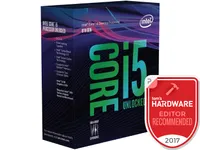Intel Coffee Lake Gaming Results: Core i5-8600K Cheat Sheet
We're diving deeper into Coffee Lake with the Intel Core i5-8600K Review: Coffee Lake's Jolting Value article, but for those of you without the time to dig through all 12 pages, we've condensed all of our gaming results to give you a cheat sheet of sorts on Intel's newest Core i5.
Coffee Lake has arrived, and after nearly a decade of quad-core doldrums in Intel's mainstream desktop space, the company finally decided to bulk up its Core i7, i5, and i3 series. Intel added two more cores to each of the families and also increased the Turbo Boost frequencies across the board. Unfortunately, the processors are not readily available at retail.
We also have articles that compare Intel's full Coffee Lake lineup to Kaby Lake and a full breakdown of comparisons to AMD's beefy Ryzen stable. And no, Coffee Lake will not run in Z270 motherboards.
If you're interested in the flagship Core i7-8700K's gaming performance, visit our Intel Coffee Lake Gaming Results: i7-8700K Cheat Sheet.
So, is it worth whipping out your wallet for Intel's six-core, six-thread Core i5 and a new motherboard?
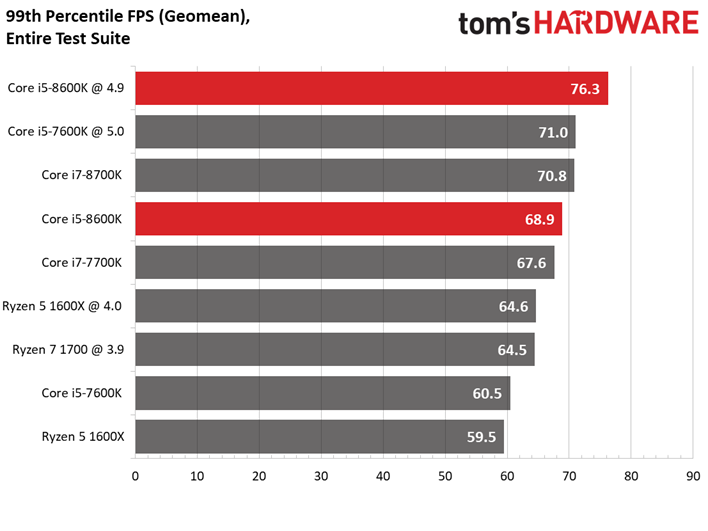
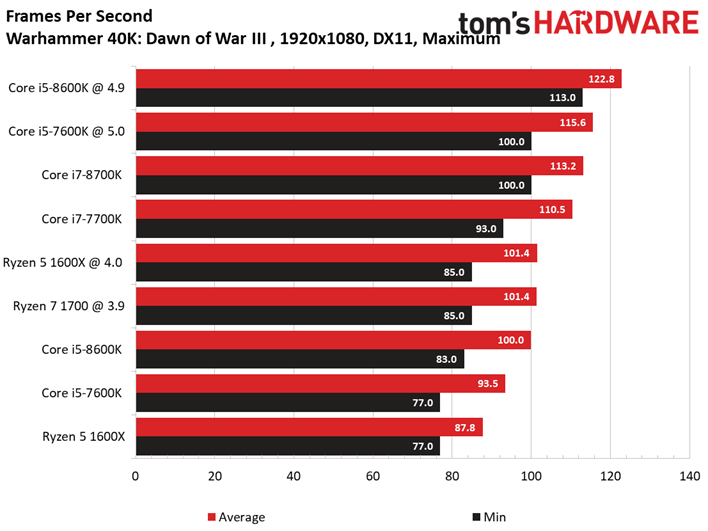
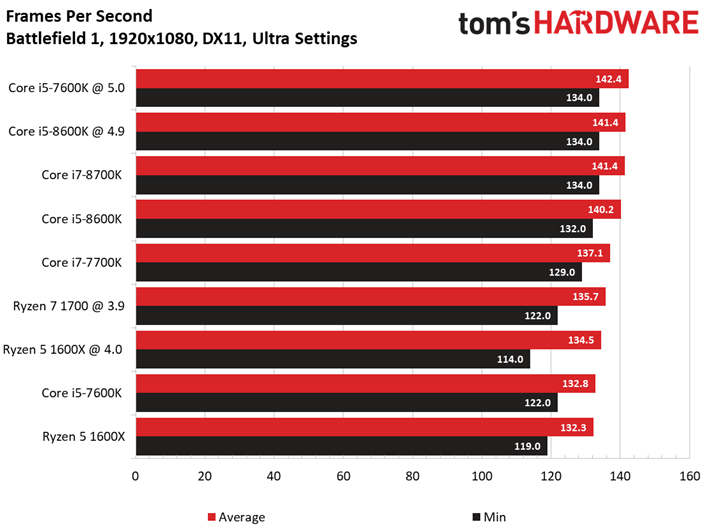
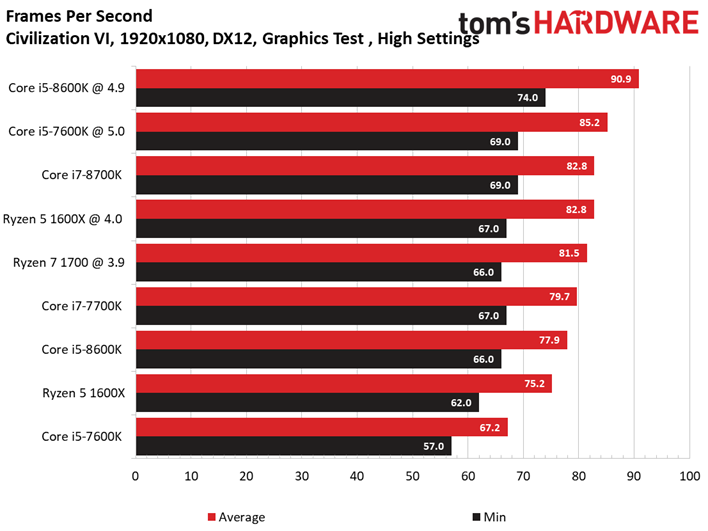
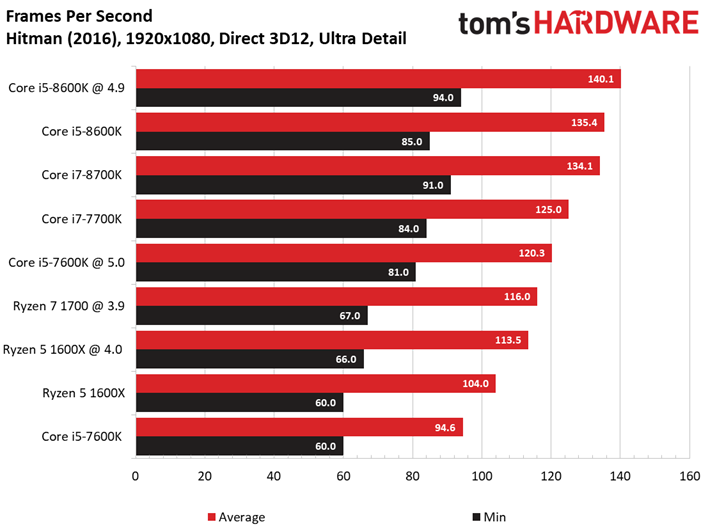
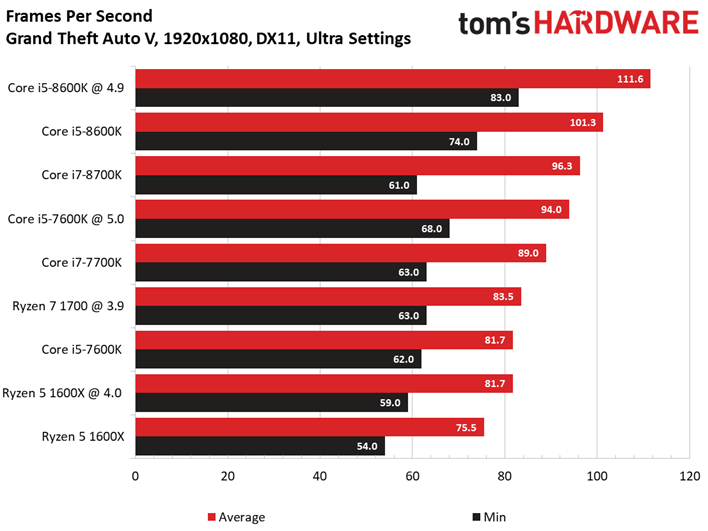
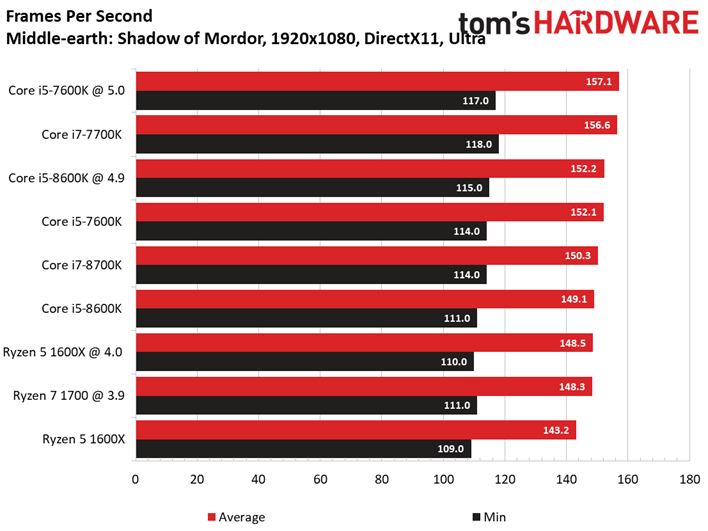
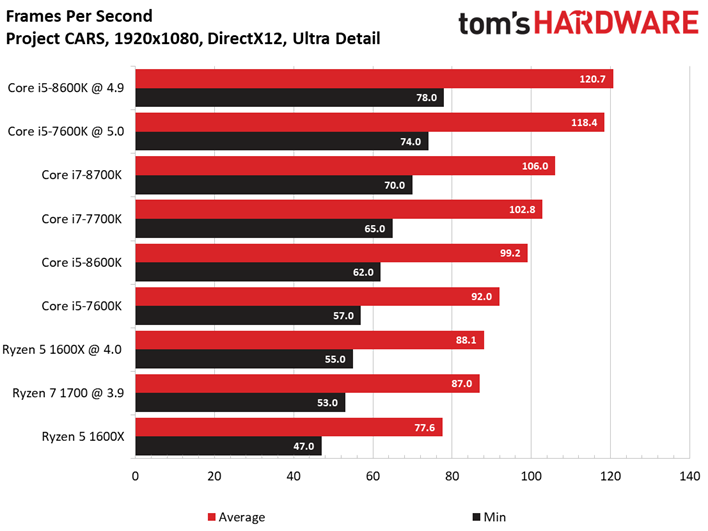
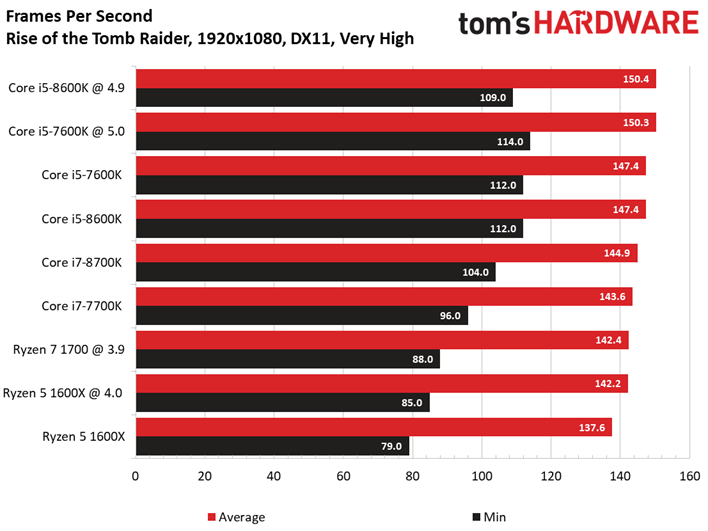
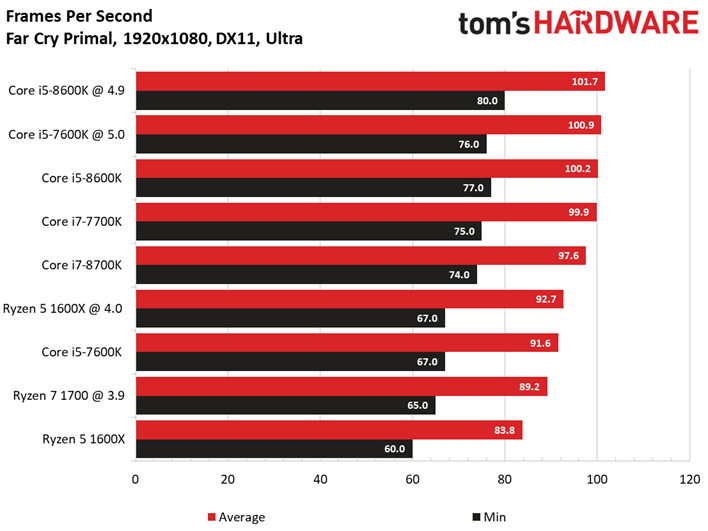
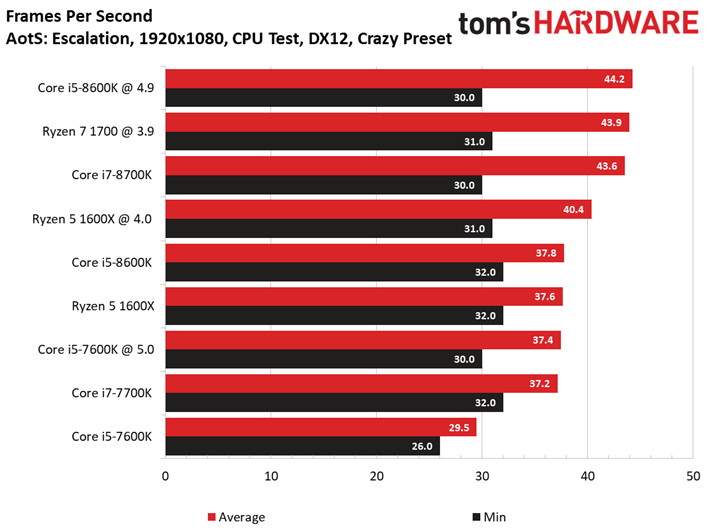
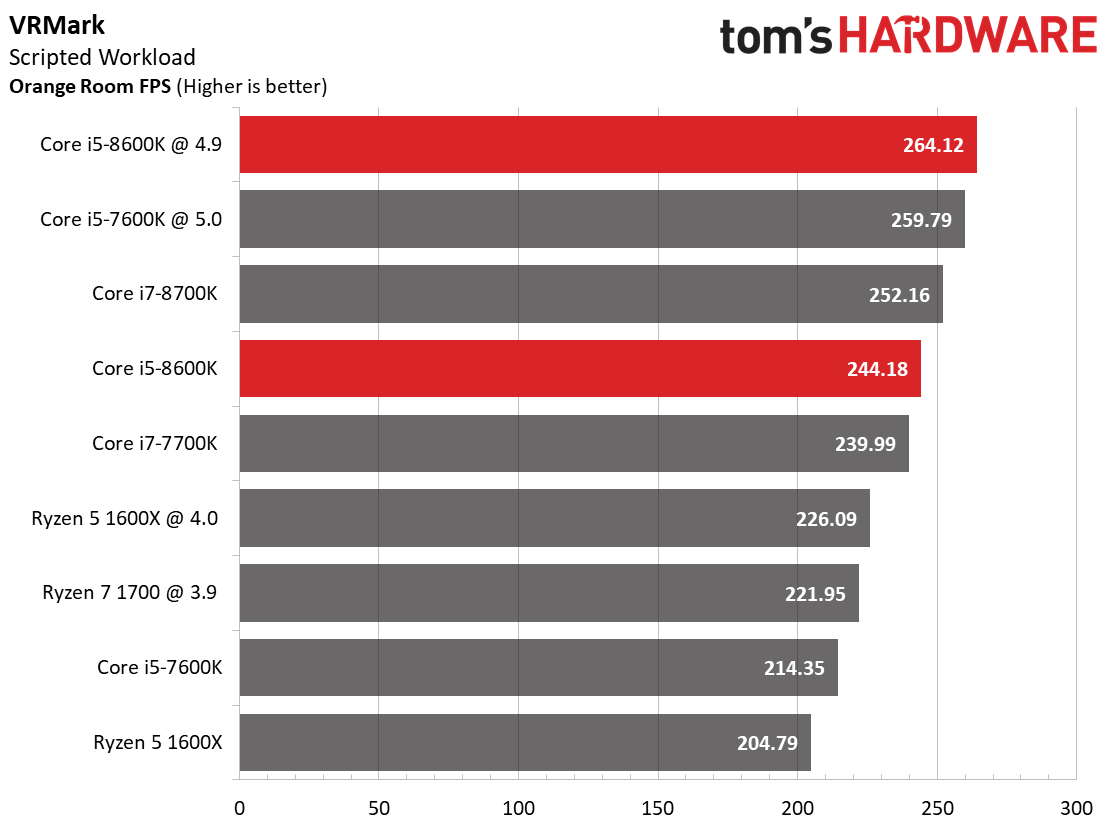
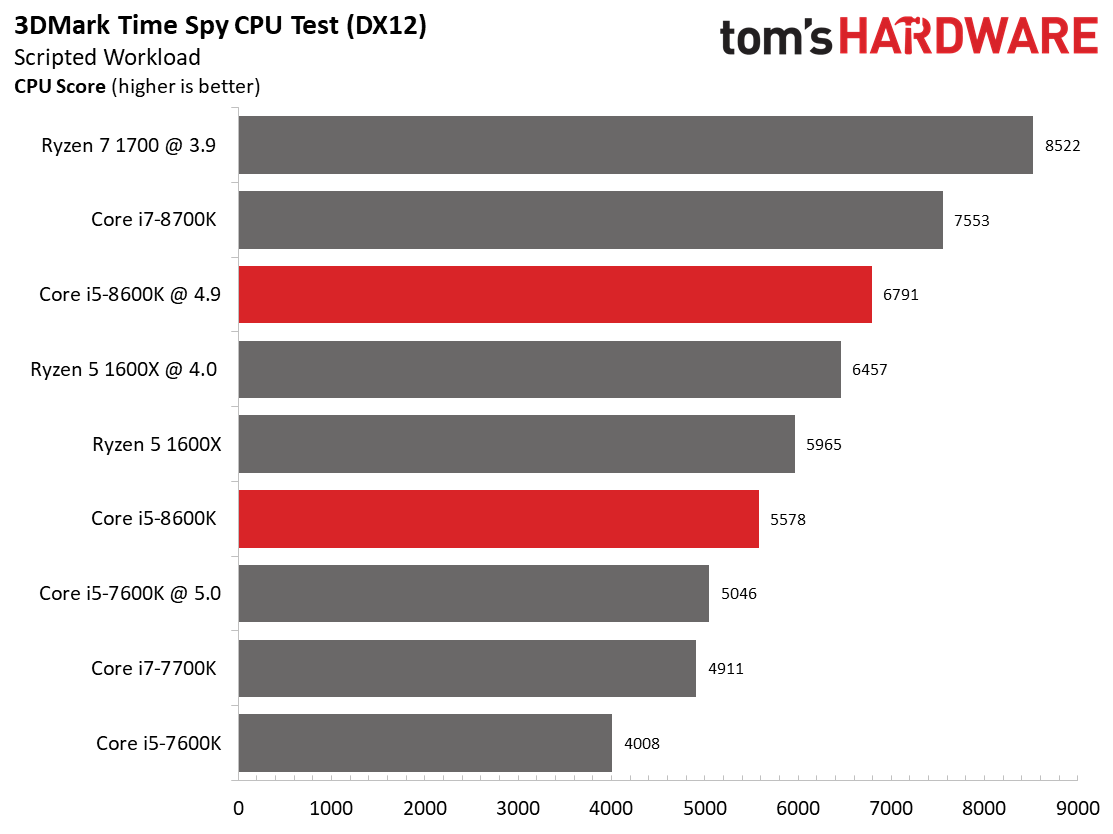
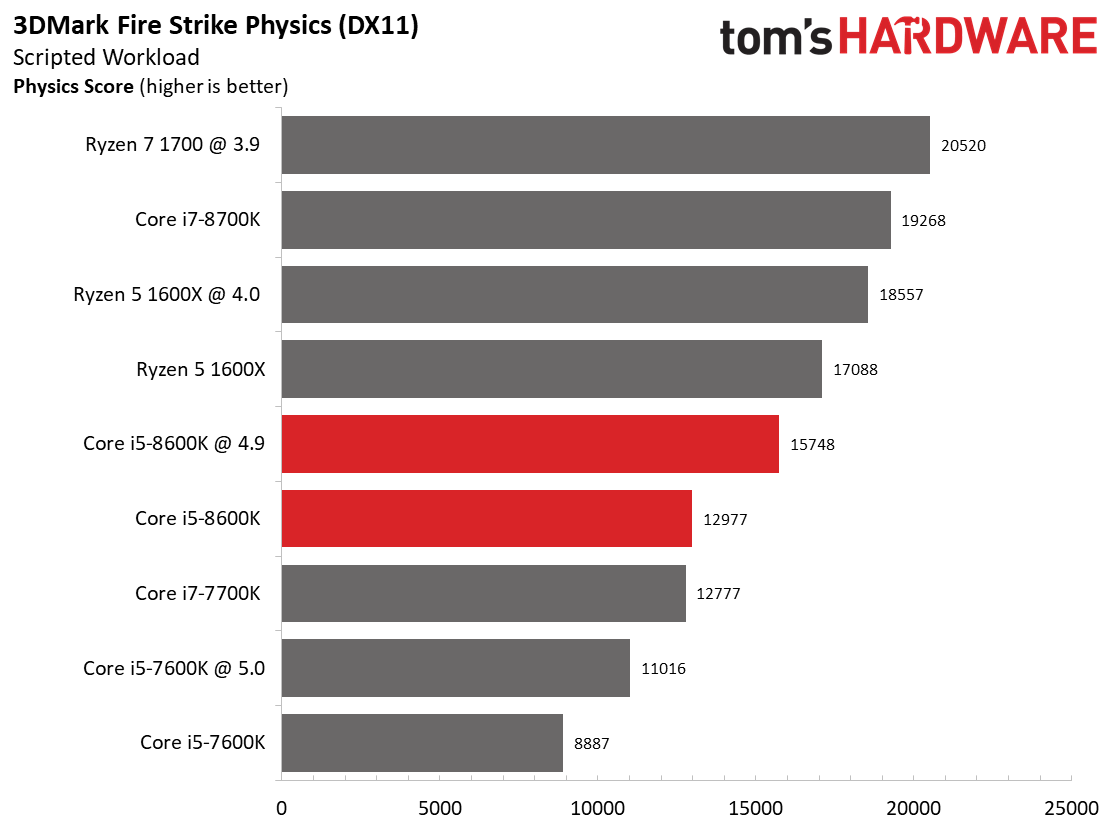
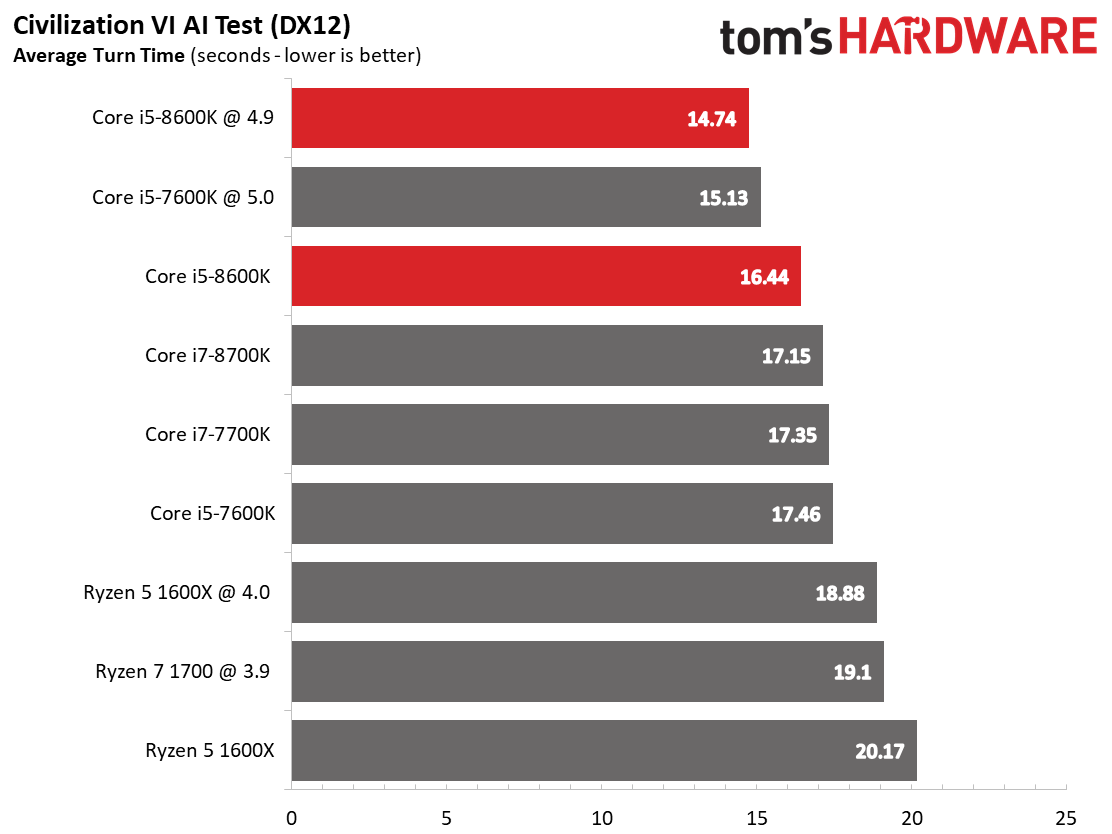
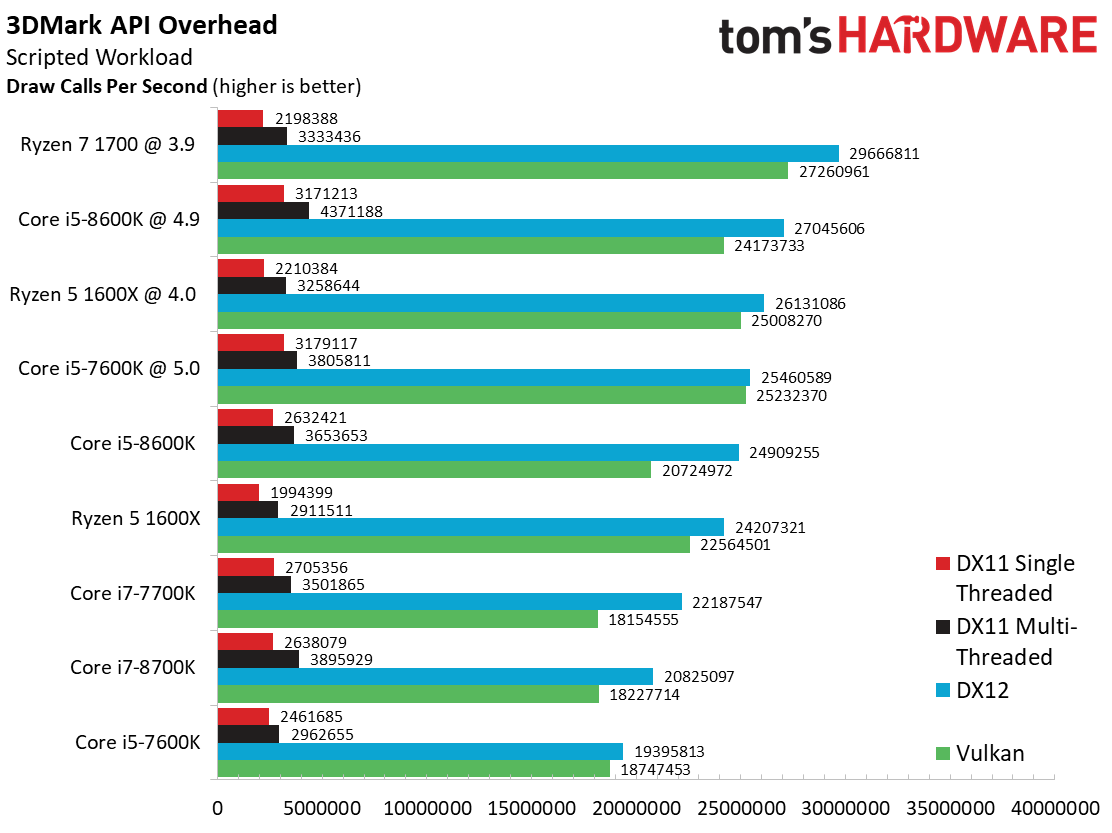
Our 99th percentile FPS chart provides a geometric mean of the results, converted into an FPS measurement, of all the games in our test suite. That single figure boils the story down rather nicely, although we've also provided the performance results in each game so you can see how the Core i5-8600K fares in your favorite titles.
Surprisingly, the Core i5-8600K matches or beats the previous-gen Core i7-7700K in the majority of titles, which represents a great value for your gaming dollar. Now you can build a gaming PC with the unlocked Core i5 model and a GeForce GTX 1080 TI or Radeon RX Vega 64 without worrying about processor bottlenecks.
Get Tom's Hardware's best news and in-depth reviews, straight to your inbox.
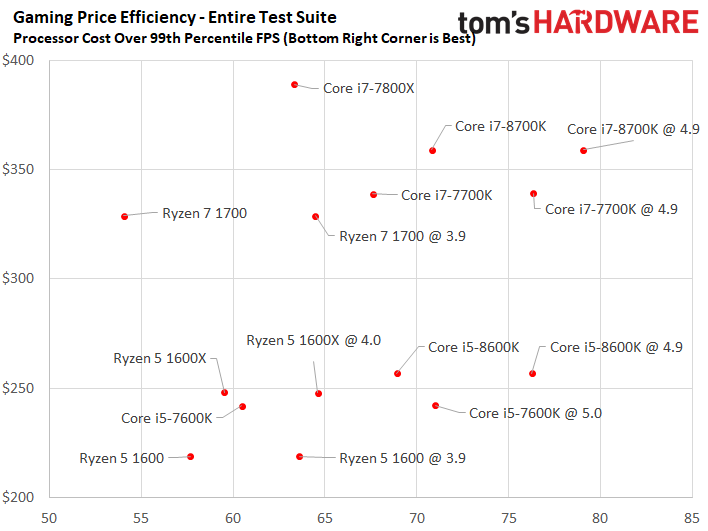
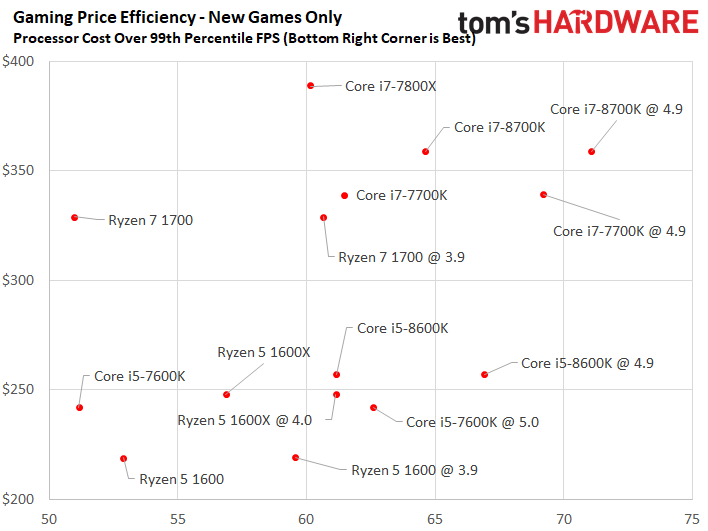
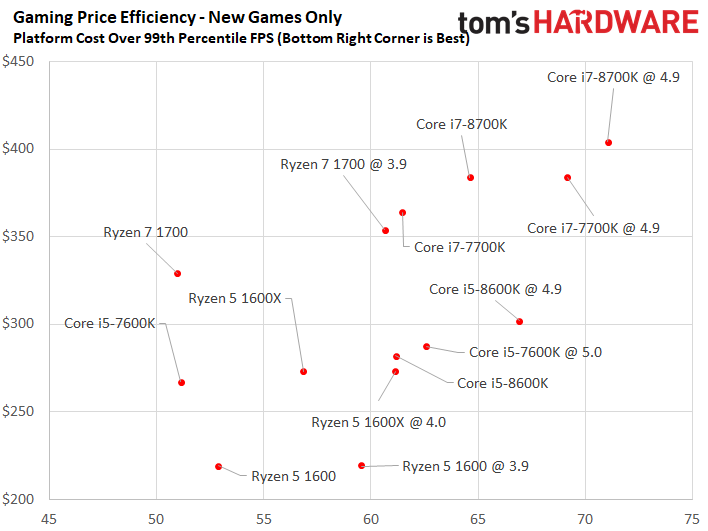
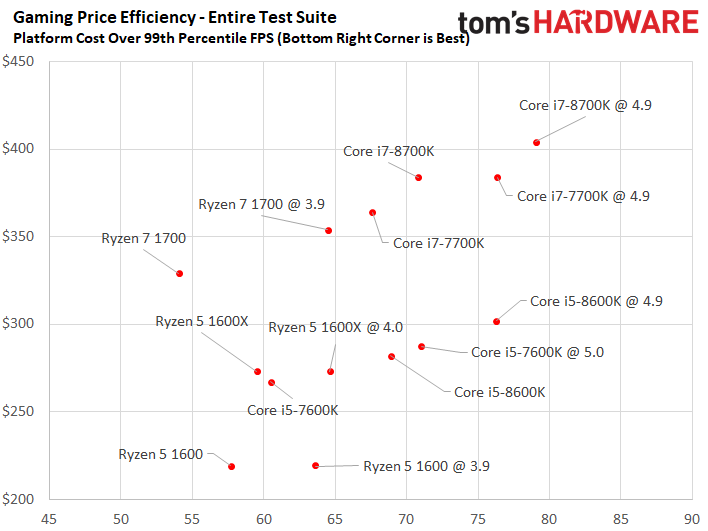
We use MSRP pricing for all models in our value chart, but be aware that you can find many of these processors well below MSRP, particularly the Ryzen models.
Intel promised Coffee Lake's increased resources would come with a minimal price increase over the Kaby Lake models for the unlocked K-series chips, and the same price for the locked models. Unfortunately, like most of the Coffee Lake models, the Core i5-8600K is a unicorn that's almost impossible to find in stock, although some outlets are accepting preorders. We also see pricing at $280, which could be the result of intense demand and limited availability. We'll have to see where prices fall after the processors are readily available, but they currently command a $40 premium over the previous-generation i5-7600K.
AMD's Ryzen 7 1700 still weighs in as a competitive processor with some tuning, but, on average, it offers nearly the same gaming performance as an overclocked Ryzen 5 1600X. You can find great deals on those processors; the Ryzen 5 1600X retails for $240, and the Ryzen 7 1700 is roughly $300. The Ryzen 7 1700 presents a compelling value alternative with its bundled cooler.
The Core i7-8700K is simple to overclock and won't require exotic cooling solutions unless you're chasing the bleeding edge, which makes it a fun chip for enthusiasts.
As we noted in the full review:
For a bit of perspective, Core i5-8600K often provides similar gaming frame rates as the previous-gen Core i7-7700K, and it's incredibly competitive in productivity workloads. However, you can buy it for $60 less. That's an incredible jump. We stop short of saying Core i5-8600K represents the best gaming value because we haven't reviewed the multiplier-locked models yet. But -8600K certainly provides the best gaming value of the processors we've tested so far. That means you can build a gaming PC with GeForce GTX 1080 Ti or Radeon RX Vega 64 and not worry about host processing bottlenecks.
We've given the Editor Recommended to the Core i5-8600K, but stay tuned for our pending Core i5-8400 review. That locked model should provide a compelling gaming price-to-performance ratio, particularly for those who aren't looking to overclock.

Paul Alcorn is the Editor-in-Chief for Tom's Hardware US. He also writes news and reviews on CPUs, storage, and enterprise hardware.
-
AlcaloidedoErgot I think it should be easier to decide if the 8700k overclocked were in the charts tooReply -
Paul Alcorn Reply20286326 said:I think it should be easier to decide if the 8700k overclocked were in the charts too
I agree, it's definitely not ideal. We are currently limited to the number of items in the bar charts because they are tied to the frame time analysis charts, which have nine entries. We are discussing this internally.
We do have the OC'd 8700K in the value plots, which provides the overall performance. As you can see, it is surprisingly close to the -8600K.
-
ubercake This is great info. I like the efficiency charts. It should also be noted that if you're gaming at resolutions higher than 1080p, the performance differences are significantly smaller. I'd like to see efficiency charts for gaming at 1440p and 2160p (maybe not so interesting?) while including i7s and i5s going back to the Sandy Bridge series if the data are available? I guess it would include current market value for the old processors which may be hard to obtain?Reply -
charparodar What is the difference between Intel Core i5 8600K and Intel Core i5 8600K @ 4.9?Reply
Thanks -
AlcaloidedoErgot Reply20292494 said:What is the difference between Intel Core i5 8600K and Intel Core i5 8600K @ 4.9?
Thanks
-
AlcaloidedoErgot The 4.9 is the overclocked 8600k, just to show how much improvement you can get with overclocking the CPU aforementionedReply -
ibjeepr I just ran CIV VI AI test, Fire Strike and Time Spy on my I7-7700k, no OC, no tweeking in any way, XMP on the memory.Reply
CIV VI after 3 runs = 18.29, not sure why I'm a full second off there.
Time Spy CPU Score = 5528, that's a lot better than the Tom's score. Pretty much even with the I7-8600K
Fire Strike Physics score - 13841 again, noticeably better than Tom's score
Any thoughts on these differences? My ram, video card? How can I lower my AI test score?
Is there someone at Tom's I can chat with about the CIV VI AI test.
I think I just confirmed that Graphics settings can have close to a .5 second impact on your average score. That seems significant.
I tried to get my score down to Tom's score of 17.35 and can't do it. I don't know what the difference is.
At stock 4.5ghz I was averaging 18.2x.
With an all core OC of 4.8 there was little to no difference which I thought was weird since it's a CPU focused test.
Keeping the 4.8ghz OC, I then dropped the graphics from 2160 60hz down to 1080 60gz with rock bottom graphics and memory impact settings with v-sync turned off.
Scored a steady 17.75 every time
Cranked the graphics back up to 2160 60hz max settings, v-sync on score went right back up to 18.2x
